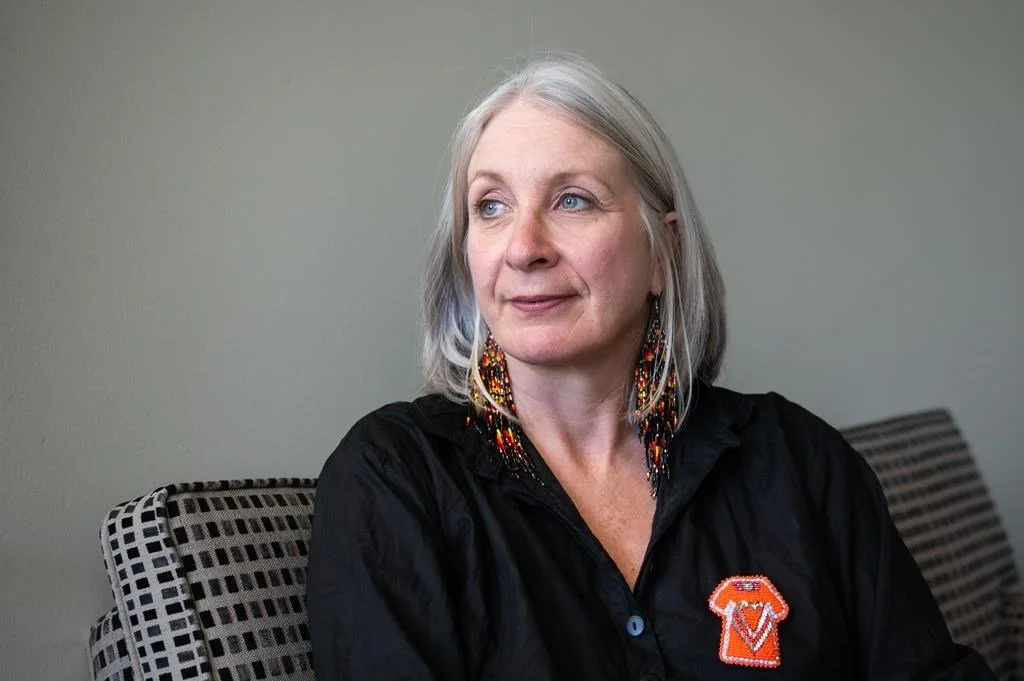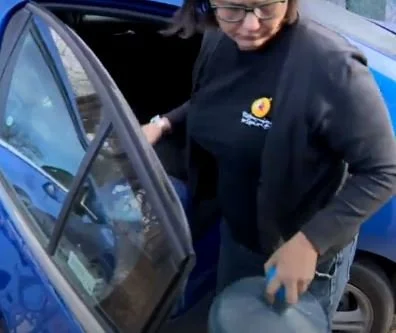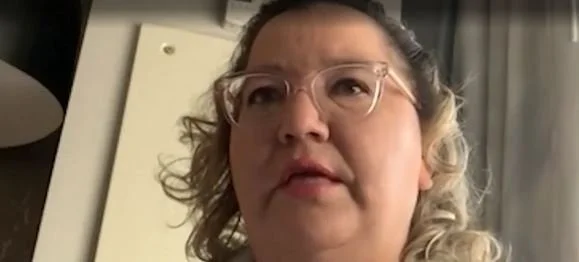The Government of Canada, acknowledging the long-standing water issues in First Nations communities, has introduced a new legislation, Bill C-61, known as the First Nations Clean Water Act. The announcement comes with the aim of ensuring clean and safe drinking water for First Nations for generations to come. “Created with First Nations, this legislation is the foundation of clean and safe drinking water for generations to come. It establishes the rights and supports that should have always been there for First Nations,” states Patty Hajdu Minister of Indigenous Services. “It creates the tools First Nations need to manage their water systems and ensure the water they draw from is safe. It holds the federal government accountable to provide sustainable funding so that communities never have to live with unsafe water. And it is thanks to the extensive expertise, work, and guidance of First Nations partners that this legislation will lead to a future where no one has to grow up without clean drinking water ever again.”
Sask. Indigenous leaders react to federal legislation on water quality
The Indigenous Services Minister has tabled much-anticipated legislation to improve water quality in First Nations communities. “Created with First Nations, this legislation is the foundation of clean and safe drinking water for generations to come,” stated Minister Patty Hajdu. “It establishes the rights and supports that should have always been there for First Nations. It creates the tools First Nations need to manage their water systems and ensure the water they draw from is safe.”
Together with First Nations leadership, Minister Patty Hajdu introduces a Bill to support clean drinking water in First Nations communities
Bill C-61 is the next step to ensure First Nations have clean drinking water for generations to come. Everyone in Canada should have access to safe and clean drinking water. First Nations have long called for legislation that affirms their inherent rights, recognizes their stewardship in keeping water clean and meets First Nations needs. Effective legislation, a national regulatory regime, and First Nations-led institutions are essential to supporting sustainable access to clean, safe and reliable drinking water in First Nations communities.
The water conundrum and Indigenous communities in Canada
Most Canadians take safe, clean drinking water for granted – most, but not all. In fact, over 17,600 people in Saskatchewan, Manitoba, and Ontario alone are currently living under a drinking water advisory that has been in place for longer than a year. These Canadians, the vast majority of whom live in First Nations communities, rely on bottled water for hydration, cooking and personal hygiene.
Water issues need to be addressed across Canada
Last Thursday, I took part in the House of Commons Environment Committee hearings into Canada’s freshwater resources. Appearing before us were representatives from Health Canada, Indigenous Services Canada, Agriculture and Agri-Food Canada and Global Affairs Canada. As you can imagine, the issue of freshwater resources is an immense and complicated—but extraordinarily important—subject, so the conversation was lively and illuminating. Indigenous Services officials were, of course, asked why there were still 28 First Nations communities with boil-water advisories eight years after the government promised to fix the huge problem of neglect they found when taking office. Most of these problems go back much further than eight years. For example, the Neskantaga First Nation in Ontario has been on a boil water advisory since 1995. While some of these situations face jurisdictional and engineering challenges, we can all agree they would have been fixed much more quickly in non-indigenous communities.
Canada’s natural resources: Supplying the world
Yet, Canada’s important task is to move from a supplier country with restricted access to global energy markets, to an energy and resources powerhouse known worldwide as the market leader in responsibly produced oil, natural gas, uranium, wind, hydropower, lumber, and agriculture. It will take continued hard work but make no mistake; we have most of the pieces already in place. We’re missing the policy framework that will take us from a restricted supplier to a market leader.
What happened to Prime Minister Justin Trudeau’s most important relationship?
He promised to end boil-water advisories in First Nations communities within five years. He said constitutionally guaranteed rights of First Nations are a sacred obligation. "I know that renewing our relationship is an ambitious goal. But I am equally certain that it is one we can, and will, achieve if we work together," Trudeau told the Assembly of First Nations in December 2015.
Statement by the Prime Minister on World Water Day
Today, as we join the international community to mark World Water Day, we are reminded of our shared responsibility to protect access to clean, safe water here at home and around the world. There is no resource more essential to Canadians and the Canadian economy than clean water. Water ecosystems, when managed properly, help alleviate hunger, poverty, and illness, fight climate change, and support biodiversity. This year’s World Water Day theme, ‘Accelerating Change’, asks us to speed up our action to keep our water safe, clean, and sustainably managed.
‘We have to fix it faster’: 28 First Nations communities still under boil water advisories
Wednesday marks World Water Day, a day raising awareness of the more than 2 billion people around the world living without access to safe water, including many First Nations communities in Canada. The federal government says 138 long-term drinking water advisories have been lifted since November 2015, although some short-term boil water advisories have also slipped into the long-term category during that timeframe.
Manitoba Chief speaking at United Nations 2023 Water Conference SharePlay Video Manitoba Chief speaking at United Nations 2023 Water Conference
First Nations, individuals now have until March 7 to claim compensation for water advisories
In 2021, Federal Court approved a class-action settlement between Canada and several First Nations that were subject to long-term drinking water advisories from 1995 to 2021. Now, settlement negotiators have extended the deadline for First Nations to submit a claim until March 7. If the Band Council Acceptance Resolution that a First Nation files with the settlement administrator is accepted, it will receive a $500,000 base payment and be eligible for additional payments of up to 50% of the amounts paid to eligible individuals in the community.
Wunnumin First Nation Calls on Canada to Ensure Community Members Receive Individual Compensation Under Class Action Settlement
Chief and Council of Wunnumin Lake First Nation are calling on the Government of Canada to ensure that compensation is provided for community members who have suffered from boil water advisories but are being denied compensation under the terms of a settlement agreement for class-action litigation on Canada’s failure to provide safe drinking water in First Nations communities.
Ahousaht First Nation celebrates completion of their new wastewater treatment plant
Today, Ahousaht First Nation is celebrating the completion of their new wastewater treatment plant, located at Ahousaht First Nation's Maaqtusiis Reserve No. 15. This plant replaces the old septic tank treatment and lift station, as well as the old outfall pipe, which was located in an area with a shellfish habitat sensitive to sewage contamination. The old system was unable to properly protect seafood safety and did not meet regulatory standards.
'Everyone deserves it': Business owners work to bring clean water to First Nations communities
With more than two dozen First Nation communities in Canada still under drinking water advisories, two Indigenous business leaders are doing their part to change that. "We wanted to create awareness of what was going on in our communities and what's still going on," Tyson Wesley, co-owner of FN Clean Water in Ottawa, told CTV National News. Driven by his own experiences with drinking water advisories, Wesley and fellow company co-owner Natasha Commanda run FN Clean Water, with the goal of bringing clean drinking water to First Nations.
How do you wash your hands without safe drinking water?
During the COVID-19 pandemic, phrases like, “Wash your hands,” and, “Make sure you isolate” became mainstream. But how do you wash your hands if you don’t have clean running water? How do you isolate when living spaces are overcrowded? With both of these tasks becoming impossible during COVID, Faculty of Arts student Jessica Lardeur, under the guidance of Dr. Cora Voyageur, PhD, professor in the Department of Sociology, decided to focus her honour’s thesis on the impact that COVID-19 has had on Indigenous communities and how they have adapted to the situation under ominous conditions. “COVID-19 impacted everyone around the world, but it severely impacted Indigenous communities,” says Lardeur.
Indigenous Life and one of the Largest Freshwater Lakes in the World
Filmmaker Kevin Settee's four-part documentary series is an ode to one of the world's largest freshwater lakes and the people and communities who care for it. The series profiles the resilience and ingenuity of four Indigenous communities: Matheson Island, Poplar River First Nation, Fisher River Cree Nation and Camp Morningstar. Using an "own voices" approach, Settee connects with people who are responding to various external challenges such as climate change, the COVID-19 pandemic and industrial encroachment.
Neskantaga First Nation's chief says residents don't support federal drinking water settlement
Residents of some First Nations affected by unsafe drinking water can now file claims under a settlement with the federal government, but the chief of one northwestern Ontario community says they don't support the arrangement. "I just want to say that I'm not in agreement with the settlement," said Roy Moonias, a member of Neskantaga First Nation, which has been under a drinking-water advisory for nearly three decades. "I heard the community say the same thing. They're not in agreement."
Get them Clean Water
Imagine, after a nice run, you go to hydrate yourself. You turn on the tap and the water that comes out is the same shade as tree bark. This is what First Nations communities have to go through on a daily basis. Clean water is not a privilege, but a human right. It doesn’t take more than a Google search to find out what’s going on in First Nations reserves across the country, yet the government of Canada seems to not be making it a priority. While we in the city complain about vaccines, masks and not being able to attend large gatherings, Indigenous communities are suffering with the lack of clean and filtered water. We all understand the importance of water. We clean ourselves with it, cook with it and hydrate ourselves with it. Seventy per cent of our body is made up of water.
Atlantic First Nations Water Authority to build, maintain clean water around the region
After decades of dealing with discoloured water, residents of Potlotek First Nation in Nova Scotia are able to put it in the past. A water treatment plant and tower has cleared and made the water safe to use, but despite the work, some residents still have concerns. "Still a lot of people won't drink it and I don't blame them. It's going to take a while yet. There's some skepticism, I guess if the water is safe," said Potlotek First Nation Chief, Wilbert Marshall. The Atlantic First Nations Water Authority is hoping for that to change.
Rama lawyer helps First Nations communities win $8-billion lawsuit
Rama First Nation lawyer Stephanie Willsey has made a big splash on behalf of her fellow Indigenous people. Willsey recently won an $8-billion class-action lawsuit against the federal government on behalf of reserves who have not had access to clean drinking water. Willsey’s legal journey to ensure there is clean drinking water on Canada's reserves started when she joined Mccarthy Tétrault in 2016. The Orillia District Collegiate and Vocational Institute (ODCVI) graduate began working for the Toronto-based firm straight out of law school.





















